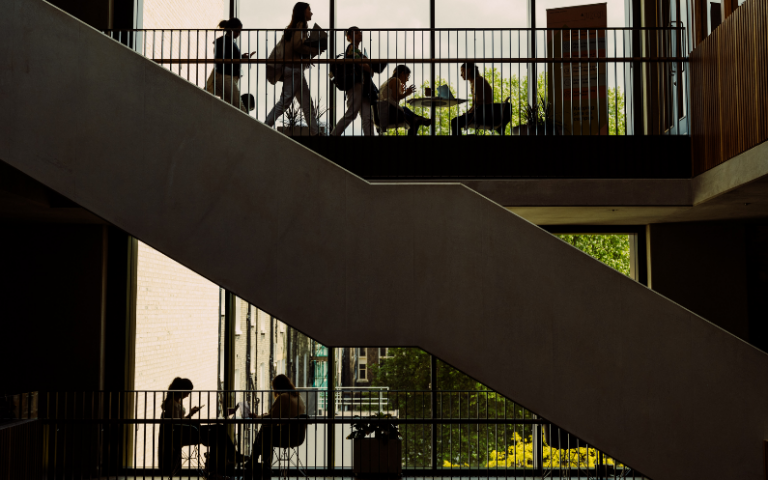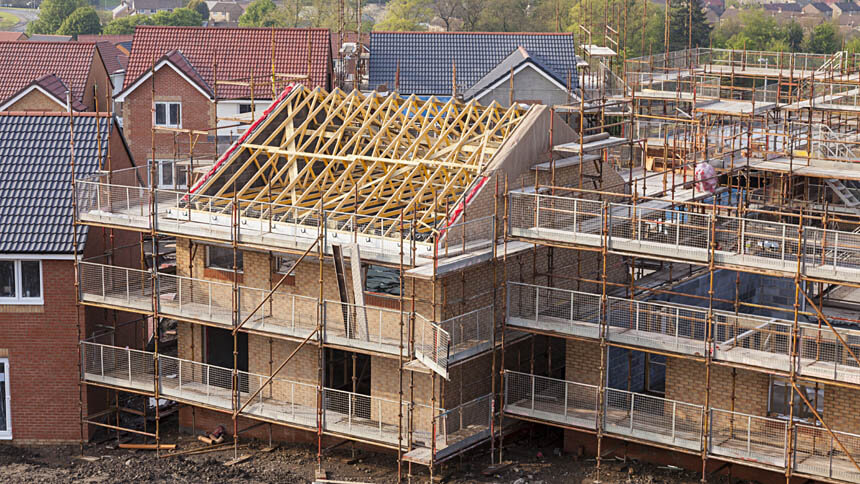An independent report has been published following an investigation relating to culture, educational practices and environment at the Bartlett School of Architecture.
The report, described as “deeply concerning”, was carried out by Howlett Brown after staff surveys at UCL highlighted a number of serious issues and complaints.
It cites numerous reports of unacceptable behaviour at the BSA – including allegations of bullying, harassment, racism and sexual misconduct – and highlights a “toxic” culture spanning decades.
It details a number of recommendations to create a safer, supportive and more positive culture for students and staff, including further investigations into certain serious allegations made by some participants, and reviewing and formalising the unit selection and crit process.

The report highlights the importance of reviewing the tutor hiring structure to mitigate bias and promote greater equality and diversity, and recommends designing a new EDI (Equality, Diversity and Inclusion) strategy with a full understanding of where the BSA is now and where it wants to be in the future.
In response to the report, UCL has announced that it has removed a number of staff of the BSA from student-facing and administrative duties with immediate effect, while it carries out further investigations. It will be setting up a working group to take forward all recommendations in the report.
Dr Michael Spence, President & Provost of UCL, said: “I am deeply shocked by the experiences of some of our students and staff during their time at the Bartlett School of Architecture. Coming forward to disclose what they have been through has taken enormous courage, and I really admire and thank them for doing so.
“Their testimonies expose an inexcusable and pernicious underbelly of bullying and other unacceptable behaviour that is completely at odds with the values on which UCL was founded. While the report acknowledges that not everyone at the BSA has been a part of this culture, that these behaviours have been able to persist over a timespan of years means that something has gone terribly wrong. We must and absolutely will address that swiftly and robustly.
“Most importantly, I want to apologise to everyone who has suffered because of the culture of bullying, harassment, discrimination and sexual misconduct within the BSA. What you have been through is wrong and should not have been allowed to happen. I recognise your pain and distress and the myriad long-term consequences of what you have experienced.
“We know we have a long way to go to rebuild trust, but we are committed to taking action.”
The BSA has approximately 347 staff with employment contracts at UCL, approximately 30 per cent of whom are full time.
Hugh Simpson, Chief Executive and Registrar of the Architects Registration Board, said: “Everyone has a right to feel safe and be treated with respect by their tutors, colleagues and employers. We have written to the Bartlett to seek an urgent meeting so we can be assured that necessary changes to culture will be made.
“We will also wish to discuss with them whether any of our regulatory requirements in relation to accreditation of courses have been breached, as well as the need for any architects employed by UCL to meet the Code of Conduct and Practice at all times.”
As the professional regulator, ARB is responsible for setting the standards for registration as an architect. It sets the standards of conduct and practice the profession must meet and take action when any architect falls below the required standards of conduct or competence. It sets requirements in the form of Criteria and processes that institutions teaching architecture must meet in order for their students to qualify and register as architects.
Where there are specific allegations against named individuals on the Register of Architects, ARB will consider disciplinary action. Details about how to submit a formal complaint are available on ARB’s website at https://complaints.arb.org.uk/. The Architects Code of Conduct and Practice includes an expectation that architects will report breaches of the Code to ARB. ARB has therefore written to the Bartlett to invite them to share any relevant information following the Environmental Investigation.
ARB’s regulatory requirements include the need for institutions to have appropriate mechanisms in place to ensure compliance with the duties relating to equality and diversity placed on the institution by equality legislation. ARB has therefore written to the Bartlett to request assurances about the teaching of the current courses it prescribes. Ultimately, ARB needs to be assured that students gaining qualifications from the Bartlett are adequately educated to be able to join the Register of Architects.
Hugh Simpson commented:“In the longer term, as the Bartlett itself has acknowledged, cultural change is needed. Professionalism and ethics need to be a fundamental part of our new regulatory framework for education, with clear standards for educational and training institutions as a requirement of accreditation.
“Many of the issues raised in the Bartlett’s independent report go beyond culture in architectural education and training to much wider questions about professionalism and culture in the sector as a whole. Not only will professionalism and ethics sit at the heart of our review of education and training, but they will also be central to our policy development for CPD and the review of the Code of Conduct and Practice which will begin later this year.”
RIBA President, Simon Allford, said every educator and education provider has a duty to support the wellbeing and safety of their students, as well as their academic development, and have effective mechanisms in place to eradicate unacceptable behaviour.
“This report identifies extensive failings which have been acknowledged by the university who have made the commitment to taking immediate action,” he continued. “This, I am well aware, will be cold comfort to those who have suffered.
“Like other creative disciplines, architecture education relies upon critical appraisal of students’ work, but this needs to be properly managed. All universities must regularly reflect on whether they have the right teaching and assessment methods in place and transparent and robust processes in place for students and staff to address any concerns.
“As a validator of 113 schools worldwide the RIBA recognises our own role in upholding standards. We are continuously reviewing our course monitoring and validation processes. Indeed we are currently exploring a new Education Code of Conduct for validated institutions, similar to the RIBA Code of Practice for Chartered Practices.”




















